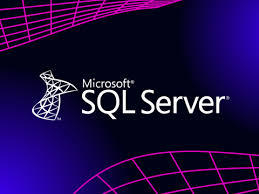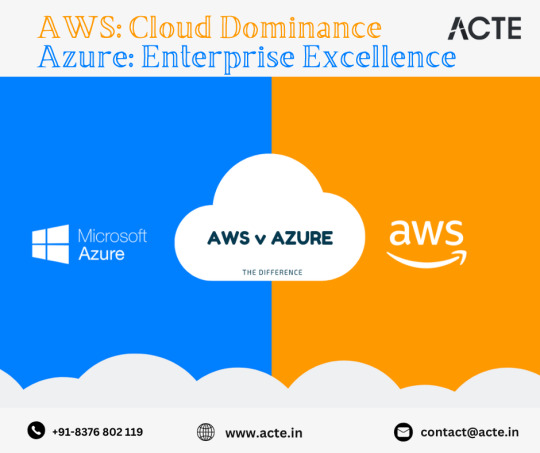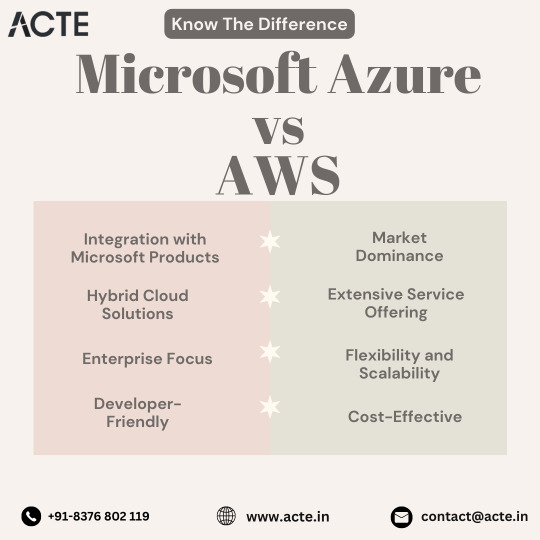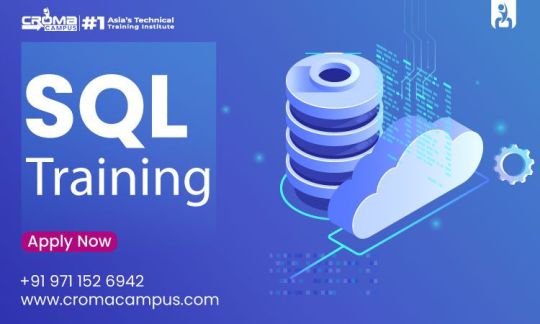#SQL Server Online Training
Explore tagged Tumblr posts
Text
A Microsoft SQL Certification is a must-have for any individual who endeavors to thrive in the field of information technology. It often offers you the privilege to have wider career options, receive better pay, and boost your trustworthiness. If you are a person who believes that the IT field is the best place to build your career, get the first step by being certified in MS SQL Server.
#Microsoft SQL Certification#SQL Certification#SQL Certificate#SQL Training Courses#SQL Certification Online#SQL Server Certification#SQL Certification Course#SQL Server Training#Microsoft SQL Server Certification#Microsoft SQL Training#SQL Training and Certification#Microsoft SQL Server Training#SQL Server Online Training#sql certifications#ms sql certification
0 notes
Text

Croma Campus specialises in IT and professional training and is recognized as a leading education provider. We offer SQL Server Online Course by certified trainers and expert guidance to help students achieve their career goals.
0 notes
Text
Understanding SQL Server

Introduction
SQL Server is a relational database management system (RDBMS) developed by Microsoft. It is designed to store and manage large volumes of data efficiently while ensuring high performance, scalability, and security. This article delves into the key features, architecture, and benefits of SQL Server, along with best practices for database management.
Key Features of SQL Server
1. Relational Database Management
At its core, SQL Server uses a relational database model, allowing data to be organized in tables that can be easily accessed and managed. Tables are structured into rows and columns, making it straightforward to retrieve and manipulate data using SQL (Structured Query Language).
2. Scalability and Performance
SQL Server is built to handle varying loads, from small applications to large enterprise-level systems. Its architecture supports horizontal and vertical scaling, allowing businesses to expand their database as their data needs grow. Features like partitioning, indexing, and in-memory processing enhance performance, making SQL Server suitable for high-transaction environments.
3. Security Features
Security is paramount in database management, and SQL Server offers robust security mechanisms. Role-based security, encryption (both at rest and in transit), and advanced auditing features help safeguard sensitive data against unauthorized access and breaches.
4. High Availability and Disaster Recovery
SQL Server provides several options for high availability and disaster recovery. Techniques such as Always On Availability Groups, database mirroring, and backup/restore strategies ensure that data remains accessible even in the event of hardware failures or disasters.
5. Integration Services (SSIS)
SQL Server Integration Services (SSIS) is a powerful data integration tool that allows users to extract, transform, and load (ETL) data from various sources. This capability is crucial for data warehousing and business intelligence applications, enabling organizations to consolidate data from different platforms.
6. Reporting Services (SSRS)
SQL Server Reporting Services (SSRS) provides comprehensive tools for generating, managing, and delivering reports. Users can create interactive reports, dashboards, and visualizations, allowing decision-makers to derive insights from data effectively.
7. Analysis Services (SSAS)
SQL Server Analysis Services (SSAS) offers analytical capabilities, allowing users to perform multidimensional analysis and data mining. It supports the creation of OLAP cubes and complex analytical models, which facilitate advanced data analysis and reporting.
SQL Server Architecture
Understanding SQL Server architecture is essential for database administrators and developers. The architecture can be broadly divided into several components:
1. Database Engine
The database engine is the core component of SQL Server, responsible for managing data storage, retrieval, and processing. It includes the query processor, storage engine, and transaction log management.
2. SQL Server Instance
An instance is a separate installation of SQL Server. Multiple instances can run on a single server, allowing for isolation and management of different applications or environments.
3. Databases
Each instance can contain multiple databases. A database is a collection of related data, organized in a structured format. SQL Server supports multiple database types, including user-defined and system databases.
4. Data Files and Log Files
SQL Server uses data files (.mdf and .ndf) to store data and log files (.ldf) to maintain transaction logs. Data files hold the actual data, while log files track all transactions, ensuring data integrity and facilitating recovery.
Benefits of SQL Server
1. Ease of Use
SQL Server's user-friendly interface and comprehensive documentation make it accessible to both novice and experienced database administrators. Tools like SQL Server Management Studio (SSMS) provide intuitive graphical interfaces for managing databases.
2. Strong Community Support
As a widely used database management system, SQL Server has a robust community of users and developers. This community contributes to a wealth of online resources, forums, and third-party tools, providing support for troubleshooting and optimization.
3. Integration with Other Microsoft Products
SQL Server seamlessly integrates with other Microsoft products, such as Excel, Power BI, and Azure. This integration enhances data analysis and visualization capabilities, allowing organizations to leverage their data effectively.
4. Comprehensive Development Tools
SQL Server offers a variety of development tools, including Visual Studio integration, T-SQL for writing queries, and APIs for connecting applications. These tools facilitate efficient database development and management.
Best Practices for SQL Server Management
To ensure optimal performance and security, consider the following best practices:
1. Regular Backups
Implement a robust backup strategy, including full, differential, and transaction log backups. Regular backups help protect against data loss and ensure quick recovery in case of failures.
2. Performance Monitoring
Utilize SQL Server’s built-in monitoring tools to track performance metrics, identify bottlenecks, and optimize queries. Tools like SQL Server Profiler and Performance Monitor can provide insights into query performance and system health.
3. Security Management
Regularly review and update security settings, including user permissions and roles. Implement encryption for sensitive data and use auditing features to monitor access and changes.
4. Indexing Strategy
Develop a sound indexing strategy to enhance query performance. Regularly review and optimize indexes to ensure efficient data retrieval without unnecessary overhead.
5. Documentation and Change Management
Maintain thorough documentation of database structures, configurations, and changes. This practice aids in troubleshooting, compliance, and knowledge sharing among team members.
0 notes
Text
Stay Competitive in the Job Market with SQL Server Online Training from in2inglobal.com
Do you need to grow your enterprise and live in advance in these days’s aggressive job market? Look no similarly than SQL Server online education from in2inglobal.Com! Our superior publications and skilled running shoes will give you the competencies and expertise you want to excel in the international of records management. Don’t miss this opportunity to enhance your resume and stick out from capability employers. Join us at in2inglobal.Com for a rewarding gaining knowledge of enjoy in order to set you apart from the opposition!
1. Best MySQL Courses Online: Our pinnacle choose for the excellent on-line MySQL guides is obtainable via in2inglobal.com. This complete route covers everything from basic to advanced topics, permitting you to broaden MySQL abilties right away. With arms-on physical games and real-international obligations, you can practice your talents in a sensible setting.
2. Microsoft SQL Server Certification Courses: To get licensed in Microsoft SQL Server, look no in addition than the certification courses offered by way of Microsoft itself. This course covers all of the important functions of Microsoft SQL Server, such as installation, configuration, and protection. Upon crowning glory of this course, you'll be well prepared to take the Microsoft SQL Server certification exam and exhibit your skills to capability employers.

3. Microsoft SQL Server Training: For an in-depth training experience, keep in mind enrolling in the Microsoft SQL Server education application provided by using in2inglobal.Com. Designed for novices and skilled professionals, this route allows you to learn at your own tempo. With skilled teachers and fingers-on workshops, you will advantage sensible competencies that permit you to enhance your profession in database management.
In end, making an investment in outstanding on line schooling for MySQL and Microsoft SQL Server assist you to live in advance in these days’s aggressive business marketplace. Whether you’re trying to hone your talents or earn a certificate, these guides provide a complete and powerful manner to reap your goals. One of the most important blessings of our on-line schooling application is its flexibility. You can get right of entry to our instructions from anywhere at any time, making it less difficult to get to paintings. So why wait for it? Take your career to the next level with the aid of enrolling in such a top on-line training courses today.
#mysql online training#best mysql course online#Microsoft SQL Server Certification Course#Microsoft SQL Server Training#paid internship
0 notes
Text

sql server business intelligence certification Elevate your career with our SQL Certification Course. Comprehensive SQL Server training online for success in the data-driven world.
sql server training online | sql server course fees , sql dba course syllabus | sql server certification courses , sql server business intelligence certification , sql server training and certification , sql server course syllabus | sql certification online
#sql server training online | sql server course fees#sql dba course syllabus | sql server certification courses#sql server business intelligence certification#sql server training and certification#sql server course syllabus | sql certification online#data analytics#power bi certification cost#power bi certification#sql#power bi course#power bi course fees#education#msbi#power bi#power bi online training
1 note
·
View note
Text
Take your career to the next level with our comprehensive Microsoft SQL server certification course. Join in2in global training and get certified today!
#online courses#e learning#online training program#online classes#online tutoring#microsoft sql server#sql#certification course
0 notes
Text
data analyst course in usa
elevate your skills with our comprehensive data analyst course. dive into analytics for a brighter career.
data analyst training in usa ,data analyst course in usa ,sql server tutorial in usa ,sql server online course in usa
#data analyst training in usa#data analyst course in usa#sql server tutorial in usa#sql server online course in usa#msbi certification#msbi training#power bi tutorial#power bi certification#sql server tutorial#sql server certification#msbi tutorial
1 note
·
View note
Text
How-To IT
Topic: Core areas of IT
1. Hardware
• Computers (Desktops, Laptops, Workstations)
• Servers and Data Centers
• Networking Devices (Routers, Switches, Modems)
• Storage Devices (HDDs, SSDs, NAS)
• Peripheral Devices (Printers, Scanners, Monitors)
2. Software
• Operating Systems (Windows, Linux, macOS)
• Application Software (Office Suites, ERP, CRM)
• Development Software (IDEs, Code Libraries, APIs)
• Middleware (Integration Tools)
• Security Software (Antivirus, Firewalls, SIEM)
3. Networking and Telecommunications
• LAN/WAN Infrastructure
• Wireless Networking (Wi-Fi, 5G)
• VPNs (Virtual Private Networks)
• Communication Systems (VoIP, Email Servers)
• Internet Services
4. Data Management
• Databases (SQL, NoSQL)
• Data Warehousing
• Big Data Technologies (Hadoop, Spark)
• Backup and Recovery Systems
• Data Integration Tools
5. Cybersecurity
• Network Security
• Endpoint Protection
• Identity and Access Management (IAM)
• Threat Detection and Incident Response
• Encryption and Data Privacy
6. Software Development
• Front-End Development (UI/UX Design)
• Back-End Development
• DevOps and CI/CD Pipelines
• Mobile App Development
• Cloud-Native Development
7. Cloud Computing
• Infrastructure as a Service (IaaS)
• Platform as a Service (PaaS)
• Software as a Service (SaaS)
• Serverless Computing
• Cloud Storage and Management
8. IT Support and Services
• Help Desk Support
• IT Service Management (ITSM)
• System Administration
• Hardware and Software Troubleshooting
• End-User Training
9. Artificial Intelligence and Machine Learning
• AI Algorithms and Frameworks
• Natural Language Processing (NLP)
• Computer Vision
• Robotics
• Predictive Analytics
10. Business Intelligence and Analytics
• Reporting Tools (Tableau, Power BI)
• Data Visualization
• Business Analytics Platforms
• Predictive Modeling
11. Internet of Things (IoT)
• IoT Devices and Sensors
• IoT Platforms
• Edge Computing
• Smart Systems (Homes, Cities, Vehicles)
12. Enterprise Systems
• Enterprise Resource Planning (ERP)
• Customer Relationship Management (CRM)
• Human Resource Management Systems (HRMS)
• Supply Chain Management Systems
13. IT Governance and Compliance
• ITIL (Information Technology Infrastructure Library)
• COBIT (Control Objectives for Information Technologies)
• ISO/IEC Standards
• Regulatory Compliance (GDPR, HIPAA, SOX)
14. Emerging Technologies
• Blockchain
• Quantum Computing
• Augmented Reality (AR) and Virtual Reality (VR)
• 3D Printing
• Digital Twins
15. IT Project Management
• Agile, Scrum, and Kanban
• Waterfall Methodology
• Resource Allocation
• Risk Management
16. IT Infrastructure
• Data Centers
• Virtualization (VMware, Hyper-V)
• Disaster Recovery Planning
• Load Balancing
17. IT Education and Certifications
• Vendor Certifications (Microsoft, Cisco, AWS)
• Training and Development Programs
• Online Learning Platforms
18. IT Operations and Monitoring
• Performance Monitoring (APM, Network Monitoring)
• IT Asset Management
• Event and Incident Management
19. Software Testing
• Manual Testing: Human testers evaluate software by executing test cases without using automation tools.
• Automated Testing: Use of testing tools (e.g., Selenium, JUnit) to run automated scripts and check software behavior.
• Functional Testing: Validating that the software performs its intended functions.
• Non-Functional Testing: Assessing non-functional aspects such as performance, usability, and security.
• Unit Testing: Testing individual components or units of code for correctness.
• Integration Testing: Ensuring that different modules or systems work together as expected.
• System Testing: Verifying the complete software system’s behavior against requirements.
• Acceptance Testing: Conducting tests to confirm that the software meets business requirements (including UAT - User Acceptance Testing).
• Regression Testing: Ensuring that new changes or features do not negatively affect existing functionalities.
• Performance Testing: Testing software performance under various conditions (load, stress, scalability).
• Security Testing: Identifying vulnerabilities and assessing the software’s ability to protect data.
• Compatibility Testing: Ensuring the software works on different operating systems, browsers, or devices.
• Continuous Testing: Integrating testing into the development lifecycle to provide quick feedback and minimize bugs.
• Test Automation Frameworks: Tools and structures used to automate testing processes (e.g., TestNG, Appium).
19. VoIP (Voice over IP)
VoIP Protocols & Standards
• SIP (Session Initiation Protocol)
• H.323
• RTP (Real-Time Transport Protocol)
• MGCP (Media Gateway Control Protocol)
VoIP Hardware
• IP Phones (Desk Phones, Mobile Clients)
• VoIP Gateways
• Analog Telephone Adapters (ATAs)
• VoIP Servers
• Network Switches/ Routers for VoIP
VoIP Software
• Softphones (e.g., Zoiper, X-Lite)
• PBX (Private Branch Exchange) Systems
• VoIP Management Software
• Call Center Solutions (e.g., Asterisk, 3CX)
VoIP Network Infrastructure
• Quality of Service (QoS) Configuration
• VPNs (Virtual Private Networks) for VoIP
• VoIP Traffic Shaping & Bandwidth Management
• Firewall and Security Configurations for VoIP
• Network Monitoring & Optimization Tools
VoIP Security
• Encryption (SRTP, TLS)
• Authentication and Authorization
• Firewall & Intrusion Detection Systems
• VoIP Fraud DetectionVoIP Providers
• Hosted VoIP Services (e.g., RingCentral, Vonage)
• SIP Trunking Providers
• PBX Hosting & Managed Services
VoIP Quality and Testing
• Call Quality Monitoring
• Latency, Jitter, and Packet Loss Testing
• VoIP Performance Metrics and Reporting Tools
• User Acceptance Testing (UAT) for VoIP Systems
Integration with Other Systems
• CRM Integration (e.g., Salesforce with VoIP)
• Unified Communications (UC) Solutions
• Contact Center Integration
• Email, Chat, and Video Communication Integration
2 notes
·
View notes
Text
Exploring Cloud Frontiers: Decoding the Dynamics of Microsoft Azure and AWS
In the rapidly evolving realm of cloud computing, selecting the optimal platform is a pivotal decision for organizations seeking to harness the boundless capabilities of the cloud. Microsoft Azure and Amazon Web Services (AWS) emerge as prominent contenders, each presenting a distinct array of features and advantages. Through AWS Training in Pune, professionals can acquire the expertise needed to leverage AWS for diverse applications across various industries. This article will delve into essential considerations when weighing the merits of Microsoft Azure against AWS.

Microsoft Azure: Crafted for Corporate Excellence
Seamless Harmony with Microsoft Products: A distinguishing feature of Azure lies in its seamless integration with Microsoft products such as Windows Server, Active Directory, and SQL Server. This makes it an enticing option for organizations deeply entrenched in the Microsoft ecosystem.
Hybrid Cloud Prowess: Azure excels in merging on-premises data centers with the cloud. Its robust hybrid cloud solutions empower organizations to maintain a unified infrastructure, seamlessly blending the advantages of both on-premises and cloud environments.
Enterprise-Centric Approach: Tailored for large enterprises, Azure offers comprehensive solutions that cater to the intricate needs of sizable organizations. Its enterprise-focused strategy ensures a smooth transition to the cloud with an extensive range of services.
Developer-Driven Interface: Featuring a user-friendly interface and robust support for various programming languages, Azure is designed to resonate with developers. This developer-centric approach streamlines the development and deployment processes, enhancing overall operational efficiency.

AWS: Dominance and Adaptability
Market Leadership: As the undisputed market leader, AWS boasts a vast ecosystem of services and a global infrastructure. This dominance translates into reliability, making AWS a trusted choice for organizations of all sizes. For those seeking mastery of AWS intricacies, enrolling in the Best AWS Online Training can unlock its full potential.
Versatile Service Portfolio: AWS stands out for its extensive service offering, encompassing a diverse array of services suitable for a wide range of use cases. This versatility allows organizations to tailor their cloud infrastructure to specific needs, ensuring a comprehensive solution.
Flexibility and Scalability: Renowned for flexibility and scalability, AWS provides organizations with the capability to customize their infrastructure effortlessly. This adaptability is pivotal for handling fluctuating workloads and ensures seamless resource scaling.
Cost-Efficiency: Recognized for cost-effectiveness, especially for startups and smaller businesses, AWS employs a pay-as-you-go pricing model. This approach allows organizations to pay only for the resources they consume, presenting a budget-friendly option for specific workloads.
Making the Choice: Tailoring to Your Organization's Distinct Needs
When deliberating between Azure and AWS, it is imperative to consider your organization's unique requirements, existing technological landscape, and future aspirations. Factors such as integration preferences, operational scale, and budget considerations will influence the ultimate decision.
Many organizations opt for a hybrid strategy, harnessing the strengths of both Azure and AWS. This approach offers flexibility, risk mitigation, and ensures a well-rounded cloud strategy.
In conclusion, the decision between Microsoft Azure and AWS is nuanced and personalized. It necessitates careful consideration of your organization's specific needs and aspirations. Whether prioritizing seamless integration with Microsoft products, embracing robust hybrid solutions, or capitalizing on the extensive service offerings of AWS, both platforms present compelling merits. Ultimately, the right choice aligns with your organization's vision for a successful journey into the realm of cloud computing.
2 notes
·
View notes
Text
Full Stack Training

How Can Full Stacking Training Boost Your Skills?
In today’s fast-paced digital world, full stack training is more essential than ever. Businesses seek skilled developers who can handle both front-end and back-end development tasks. Whether you're a beginner or someone looking to upgrade your skill set, full stack training offers the knowledge needed to thrive in tech.
What Is Full Stack Training?
Full stack training teaches you how to build and manage both the client-side (front-end) and server-side (back-end) of web applications. This training covers essential languages, frameworks, and tools used to develop complete, scalable web applications.
Why Choose Full Stack Training?
There are several reasons why full stack development is a preferred path:
High Demand: Full stack developers are in high demand across industries.
Versatility: You can handle projects from start to finish.
Lucrative Salary: Full stack professionals earn competitive salaries globally.
Flexibility: Work as a freelancer, startup founder, or part of a corporate team.
By enrolling in full stack training, you're investing in a skill set that can lead to countless career opportunities.
Key Components of Full Stack Training
To become a successful full stack developer, you must understand both front-end and back-end technologies. Let’s break it down.
1. Front-End Development
The front-end is what users see and interact with on a website.
HTML: The foundation of any web page.
CSS: Used to style HTML content.
JavaScript: Adds interactivity and functionality to web pages.
Frameworks: React, Angular, or Vue.js for building dynamic user interfaces.
2. Back-End Development
The back-end manages databases, servers, and application logic.
Programming Languages: Node.js, Python, PHP, Java, or Ruby.
Databases: SQL (MySQL, PostgreSQL) and NoSQL (MongoDB).
APIs: Create and manage RESTful APIs for data exchange.
Server Management: Handling server setup, security, and performance optimization.
3. Version Control Systems
Git & GitHub: Essential for collaboration and code management.
4. Deployment and Hosting
Learn how to deploy apps using:
Heroku
Netlify
AWS or Azure
By mastering all these elements through full stack training, you'll be ready to tackle any web development project.
What to Look for in a Full Stack Training Program
Not all full stack training courses are created equal. Here’s what to look for:
1. Comprehensive Curriculum
Choose a program that covers both front-end and back-end development, version control, deployment, and best coding practices.
2. Hands-On Projects
Practice is key. Look for training with real-world projects and assignments.
3. Expert Instructors
Experienced mentors can make complex topics easy to understand.
4. Certification
A recognized certificate can boost your credibility with employers.
Benefits of Full Stack Training
Still wondering why you should enroll in a full stack course? Here are some unbeatable benefits:
1. Accelerated Learning Path
Full stack training condenses years of knowledge into a structured, easy-to-follow format.
2. Career Flexibility
You can work in various roles such as:
Web Developer
Software Engineer
DevOps Specialist
Technical Project Manager
3. Job-Ready Skills
You’ll be prepared for real-world jobs with a strong portfolio of projects.
4. Freelance and Remote Work Opportunities
Mastering full stack development gives you the freedom to work from anywhere.
Full Stack Developer Salary Expectations
After completing full stack training, your earning potential significantly increases. In the US, entry-level full stack developers earn between $60,000 and $90,000 per year. Experienced professionals can earn well over $120,000 annually.
Freelancers often charge between $30 to $100 per hour, depending on skill and experience.
Online vs Offline Full Stack Training
Online Training
Flexible schedule
Affordable
Global access to top instructors
Offline Training
In-person interaction
Structured environment
Local networking opportunities
Choose the option that best fits your learning style and lifestyle.
Tools You’ll Learn in Full Stack Training
Here are some essential tools commonly taught in full stack programs:
VS Code (Code Editor)
Postman (API Testing)
Docker (Containerization)
Jira (Project Management)
Webpack (Module Bundler)
Conclusion: Start Your Full Stack Journey Today
Full stack training equips you with the tools, technologies, and confidence to become a complete web developer. Whether you're just starting or want to level up your career, the right training program can open doors to numerous job roles and freelance opportunities.
By investing in your education through full stack training, you gain job security, career growth, and the flexibility to shape your professional path.
1 note
·
View note
Text
A Microsoft SQL Certification is a good option if someone wants to better his or her prospects of becoming a database administrator. There are many types of certificates available, so each person can select the most suitable one based on his/her own career goals.
#Microsoft SQL Certification#SQL Certification#SQL Certificate#SQL Training Courses#SQL Certification Online#SQL Server Certification#SQL Certification Course#SQL Server Training#Microsoft SQL Server Certification#Microsoft SQL Training#SQL Training and Certification#Microsoft SQL Server Training#SQL Server Online Training#sql certifications#ms sql certification
0 notes
Text

Discover the power of SQL through SQL Online Training, an educational program that provides individuals with an online platform for learning the language. A wide range of SQL topics and techniques are covered in this training program, such as syntax, database design, querying techniques, data manipulation, and optimization strategies. Participants will gain hands-on experience with SQL databases.
#SQL Online Training#SQL Server Online Course#SQL Server Online Certification#certification#education#training#cromacampus
0 notes
Text
Empowering Careers with Online Coding Courses
The Rise of Coding Education
The digital age has transformed coding into a cornerstone of opportunity, unlocking pathways to dynamic careers in technology. Across the United States, individuals from all walks of life are turning to online education to master in-demand skills. Full Stack Development Online Courses have gained immense popularity, offering comprehensive training in both front-end and back-end technologies. These programs empower aspiring developers to create fully functional web applications, making them highly valuable in today’s tech-driven job market.
The appeal of online coding education lies in its flexibility and accessibility. Whether you’re a student in Virginia, a professional seeking a career change, or a lifelong learner, these courses provide a structured yet adaptable path to proficiency. The tech industry’s rapid growth has elevated coding from a niche skill to a universal asset, enabling individuals to innovate and contribute to the digital landscape. From urban hubs to small towns, the opportunity to learn coding online is reshaping futures.
The Scope of Full Stack Development
Full stack development encompasses the art of building both the user-facing and server-side components of a website or application. Full Stack Development Online Courses teach a wide array of skills, from designing responsive interfaces with HTML, CSS, and JavaScript to managing databases and servers with tools like Node.js and SQL. This holistic approach ensures learners understand the entire development process, from crafting visually appealing front-ends to building secure, efficient back-ends.
These courses are designed for flexibility, catering to both beginners and those with some coding experience. They often include hands-on projects, such as building a portfolio website or an e-commerce platform, allowing learners to apply their skills in real-world scenarios. With interactive lessons, video tutorials, and community forums, online platforms create engaging environments that foster growth. For aspiring developers, mastering full stack development opens doors to roles like web developer, software engineer, or tech entrepreneur.
Starting with Java in Virginia
For those new to coding, starting with a foundational language like Java is a smart choice. A java course for beginners in Virginia provides an accessible entry point, teaching the basics of programming through one of the most widely used languages in the world. Java’s versatility makes it ideal for building applications, from mobile apps to enterprise systems, and its clear syntax is beginner-friendly, helping learners grasp core concepts like variables, loops, and object-oriented programming.
In Virginia, where tech hubs like Arlington and Richmond are thriving, demand for skilled programmers is on the rise. Online Java courses tailored for beginners offer Virginians the chance to learn at their own pace, with modules covering topics like data structures, algorithms, and debugging. These courses often include practical exercises, such as creating simple programs or games, to build confidence and competence. For residents seeking to enter the tech industry, a Java foundation can lead to opportunities in local startups or global corporations.
Benefits of Online Learning
Online coding courses have revolutionized education by removing barriers like location and rigid schedules. Full Stack Development Online Courses provide a comprehensive curriculum accessible from anywhere, allowing learners to study while balancing work or family commitments. Interactive platforms offer video lectures, coding challenges, and real-time feedback, ensuring an engaging learning experience. Many programs also provide certificates upon completion, enhancing resumes and signaling expertise to employers.
Similarly, a java course for beginners in Virginia leverages online tools to create a supportive learning environment. Features like live coding sessions, discussion forums, and one-on-one mentorship help demystify complex concepts. The self-paced nature of these courses allows learners to revisit lessons, ensuring they fully grasp each topic before moving forward. This flexibility is particularly valuable in Virginia, where professionals in tech-heavy regions can upskill without disrupting their busy lives.
Building a Tech Career
Learning to code is a gateway to a rewarding career, and online courses make this journey accessible to all. Full stack development equips individuals with the skills to handle diverse projects, from designing user interfaces to managing server infrastructure. This versatility makes full stack developers highly sought-after, with opportunities in industries like finance, healthcare, and e-commerce. In Virginia, where the tech sector is expanding, these skills are especially valuable, offering pathways to roles with competitive salaries.
A java course for beginners in Virginia lays the groundwork for further specialization. Java’s widespread use in enterprise applications and Android development ensures its relevance, making it a strategic starting point. Beginners who master Java can transition to advanced topics like full stack development or explore related fields like data science. With Virginia’s proximity to Washington, D.C., and its growing tech ecosystem, these skills can lead to local opportunities or remote roles with global impact.
Shaping the Future Through Code
The journey to mastering coding is both challenging and rewarding, offering a chance to create, innovate, and solve real-world problems. Full Stack Development Online Courses provide a comprehensive path to becoming a versatile developer, while a java course for beginners in Virginia offers an accessible entry into the world of programming. Together, these educational opportunities empower individuals to build skills that are both timeless and cutting-edge.
As technology continues to shape the future, coding education is a powerful tool for personal and professional growth. Whether you’re in Virginia or beyond, online courses make it possible to transform aspirations into reality, one line of code at a time. By embracing these opportunities, learners can not only launch fulfilling careers but also contribute to a world where technology drives progress and connection.
0 notes
Text
sql server training and certification Elevate your career with our SQL Certification Course. Comprehensive SQL Server training online for success in the data-driven world.
sql server training online | sql server course fees , sql dba course syllabus | sql server certification courses , sql server business intelligence certification , sql server training and certification , sql server course syllabus | sql certification online
#sql server training online | sql server course fees#sql dba course syllabus | sql server certification courses#sql server business intelligence certification#sql server training and certification#sql server course syllabus | sql certification online#data analytics#power bi certification cost#power bi certification#sql#power bi course#power bi course fees#education#power bi#msbi#power bi online training
1 note
·
View note
Text
Which Computer Course Is Most in Demand in India Right Now?

India's technology landscape is one of the most dynamic in the world, characterized by rapid digital transformation, a thriving startup ecosystem, and a robust IT services sector. This constant evolution means that the demand for specific computer skills is always shifting. If you're considering enhancing your skills or embarking on a new career path, understanding which computer courses are currently most in demand is crucial.
While "demand" can fluctuate slightly based on region and industry, several core technological areas consistently show high growth and require specialized training. Based on current industry trends, here's a look at the computer courses generating significant buzz and opening up numerous opportunities across India in 2025.
Top Computer Courses Highly Sought After in India
1. Artificial Intelligence (AI) & Machine Learning (ML)
AI and ML are no longer just buzzwords; they are at the core of innovation in almost every sector, from healthcare and finance to e-commerce and manufacturing. In India, the adoption of AI technologies is accelerating, leading to a strong demand for professionals who can develop, implement, and manage AI systems.
Why in Demand: Automation, data analysis, predictive modeling, smart solutions, and the push for digital transformation in various industries.
Key Skills Learned: Python programming, machine learning algorithms, deep learning, natural language processing (NLP), computer vision.
2. Data Science & Big Data Analytics
With the explosion of data generated daily, the ability to collect, process, analyze, and interpret large datasets is invaluable. Data scientists and analysts help businesses make informed decisions, identify trends, and predict future outcomes.
Why in Demand: Every organization, regardless of size, is grappling with data. The need for professionals who can extract meaningful insights is paramount.
Key Skills Learned: Python/R programming, SQL, statistical modeling, data visualization, Big Data technologies (Hadoop, Spark).
3. Full-Stack Web Development
As businesses increasingly establish and expand their online presence, the demand for versatile web developers who can handle both the front-end (what users see) and back-end (server-side logic) of applications remains consistently high.
Why in Demand: Digitalization of businesses, e-commerce boom, proliferation of web-based applications, and the need for seamless user experiences.
Key Skills Learned: HTML, CSS, JavaScript (with frameworks like React, Angular, Vue.js), Node.js, Python (Django/Flask), Ruby on Rails, databases (SQL, MongoDB).
4. Cybersecurity
With the increasing number of cyber threats and data breaches, organizations across India are investing heavily in cybersecurity measures. Professionals who can protect sensitive data, prevent attacks, and ensure network security are critically needed.
Why in Demand: Growing digital transactions, increased online data storage, and the imperative for robust data protection laws.
Key Skills Learned: Network security, ethical hacking, cryptography, risk management, incident response, security tools.
5. Cloud Computing (AWS, Azure, Google Cloud)
Cloud adoption is no longer a luxury but a necessity for many Indian businesses seeking scalability, flexibility, and cost efficiency. Expertise in major cloud platforms is a highly sought-after skill.
Why in Demand: Cloud migration, managing cloud infrastructure, deploying applications in the cloud, cost optimization.
Key Skills Learned: Specific cloud platforms (AWS, Azure, GCP), cloud architecture, virtualization, containerization (Docker, Kubernetes).
6. DevOps
DevOps practices streamline software development and IT operations, leading to faster, more reliable software delivery. Professionals with DevOps skills are crucial for modern software companies aiming for efficiency and continuous integration/delivery.
Why in Demand: Need for faster product cycles, automation of development pipelines, and improved collaboration between teams.
Key Skills Learned: CI/CD tools (Jenkins, GitLab CI), scripting (Python, Bash), configuration management (Ansible), containerization (Docker, Kubernetes), cloud platforms.
Factors Driving Demand in India
Several factors contribute to these trends:
Digital India Initiative: Government push for digitalization across all sectors.
Startup Boom: A vibrant startup ecosystem constantly innovating and requiring new tech talent.
Global Capability Centers (GCCs): International companies setting up R&D and tech operations in India.
Remote Work Flexibility: Opening up opportunities across different regions and cities.
How to Choose the Right Course for You
While these courses are in high demand, the "best" one for you depends on your interests, aptitude, and career goals.
Assess Your Interest: Are you passionate about data, building applications, or securing systems?
Research Career Paths: Understand the daily tasks and long-term prospects associated with each field.
Look for Practical Training: Opt for computer courses that emphasize hands-on projects and real-world scenarios. Many computer training institute in Ahmedabad and other cities offer programs with strong practical components.
Consider Faculty and Curriculum: Ensure the instructors have industry experience and the curriculum is up-to-date with the latest trends.
Check for Placement Support: If securing a job quickly is a priority, inquire about career services or placement assistance.
Investing in an in-demand computer course is a strategic move for your future career. By aligning your learning with current industry needs, you significantly enhance your employability and open doors to exciting opportunities in India's booming tech sector.
Contact us
Location: Bopal & Iskcon-Ambli in Ahmedabad, Gujarat
Call now on +91 9825618292
Visit Our Website: http://tccicomputercoaching.com/
0 notes
Text
learn sql server online course
elevate your skills with accredited sql server online course. gain expertise and earn a valuable certificate. start learning today!
sql database training courses ,learn sql online course ,sql server database training ,sql server complete course ,online sql training and certification ,
#sql database training courses#learn sql online course#sql server database training#sql server complete course#online sql training and certification#msbi certification#msbi training#msbi tutorial#sql server tutorial#sql server certification#power bi certification#power bi tutorial
1 note
·
View note